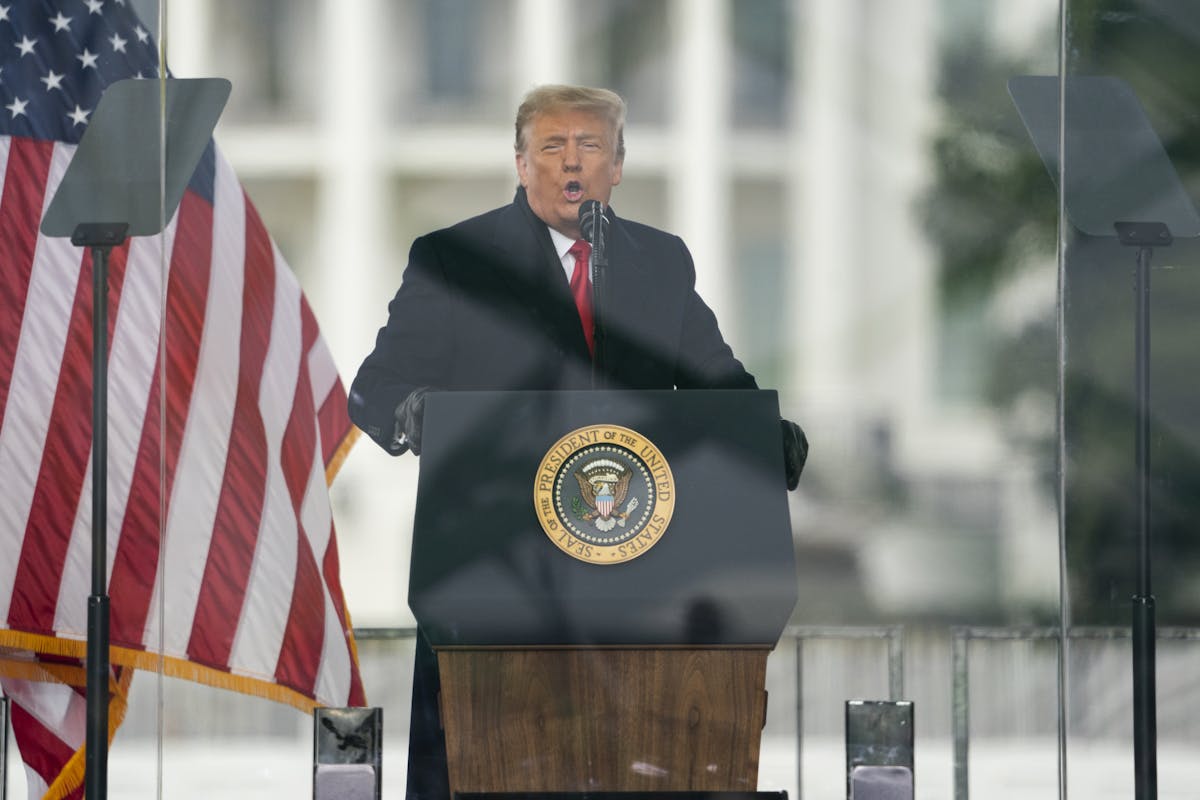In Jack Smith’s Race To Convict Trump Before the Election, It’s Beat the Clock to the Rocket Docket of the Appeals Court
The Supreme Court could be watching and waiting for the moment to render a final decision on presidential immunity and double jeopardy.

The Supreme Court’s decision to abstain — for now — from intervening in President Trump’s criminal trial over his role on January 6 means that the question is, at the moment, before a left-leaning appellate court where the 45th president’s foes have prospered.
That would be the United States Court of Appeals for the District of Columbia Circuit, which now will ponder whether Mr. Trump’s actions in the aftermath of the 2020 election are covered by presidential immunity and protected from prosecution by double jeopardy.
Mr. Smith has asked for — and received — expedited consideration before that tribunal as well, as he pulls out all the stops to keep a scheduled March 4 trial date from being pushed back into the summer. He invokes a “compelling public interest” in Mr. Trump’s trial moving expeditiously.
The special counsel appears worried that Mr. Trump could be elected to a second term. That fear is precisely what animates talk that the prosecution is, at bottom, political — meaning designed to affect the election. Were Mr. Trump to win the election, in any event, the case could then die on the vine.
Mr. Trump’s team urged the Supreme Court to resolve the immunity question in a “cautious, deliberative manner, not at breakneck speed.” The three circuit riders — Karen Henderson, Michelle Childs, and Florence Pan, though, have set a brisk briefing schedule, with the final filing due on January 2. It’s not to the government though, but rather to the accused, that the Constitution grants the right to a “speedy trial.”
The 45th president had argued to the high court that a “rushed schedule, as the prosecution demands, would vitiate these constitutional rights and irreparably undermine public confidence in the judicial system.” For his part, Mr. Smith cautioned against “undue delay.” The circuit has not yet set a date for oral arguments.
The district court judge set to oversee Mr. Trump’s trial, Tanya Chutkan, has already ruled against Mr. Trump on the immunity issue, ruling that the protection does not apply to former presidents and that double jeopardy does not avail. In another, civil case, the D.C. Circuit held that Mr. Trump is also not entitled to immunity for suits brought seeking to hold him financially liable for the chaos at the Capitol on January 6.
If Judge Chutkan’s ruling is affirmed by a three-judge panel, Mr. Trump will have 45 days to request an en banc hearing — meaning a decision rendered by the full D.C. Circuit, not just these three panelists. He will have 90 days from the panel’s ruling, if it is adverse, to request that the Supreme Court hear his case, via the regular route of certiorari. Four justices would have to elect to hear the case.
All of this appears as if it could pile up months of delays onto Mr. Smith’s case — the Supreme Court’s choice to abstain thus far could be calendrically costly for the special counsel. The D.C. Circuit, though, could mitigate that delay by lifting the stay on the case imposed by Judge Chutkan, who suspended the proceedings in her court while Mr. Trump’s appeal is pending.
If the D.C. Circuit lifts Judge Chutkan’s stay, the case would rumble into motion again, though Mr. Trump could then make his own appeal to the Nine to halt the proceedings pending their review. He likely would have a strong case, as courts have held that the presence or absence of immunity is a matter that needs to be resolved before the case matures to trial.
Even if the appellate court does not lift Judge Chutkan’s stay, their timeline still qualifies them as a “rocket docket,” or one known for speed. Oral arguments are scheduled for January 9, and it is possible that a ruling could come soon after. While practices vary by court and jurist, many appellate tribunals base their rulings on the briefing, rather than courtroom disputation. That could favor a swifter disposition.
If, though, Mr. Smith’s case is delayed, other prosecutors — District Attorneys Alvin Bragg of Manhattan and Fani Willis of Fulton County — could eye his early March trial slot. Mr. Bragg is slated to begin just weeks later, on March 25. Ms. Willis has proposed a date in August. Both, like Mr. Smith, likely want their cases wrapped before a potential second Trump administration.

